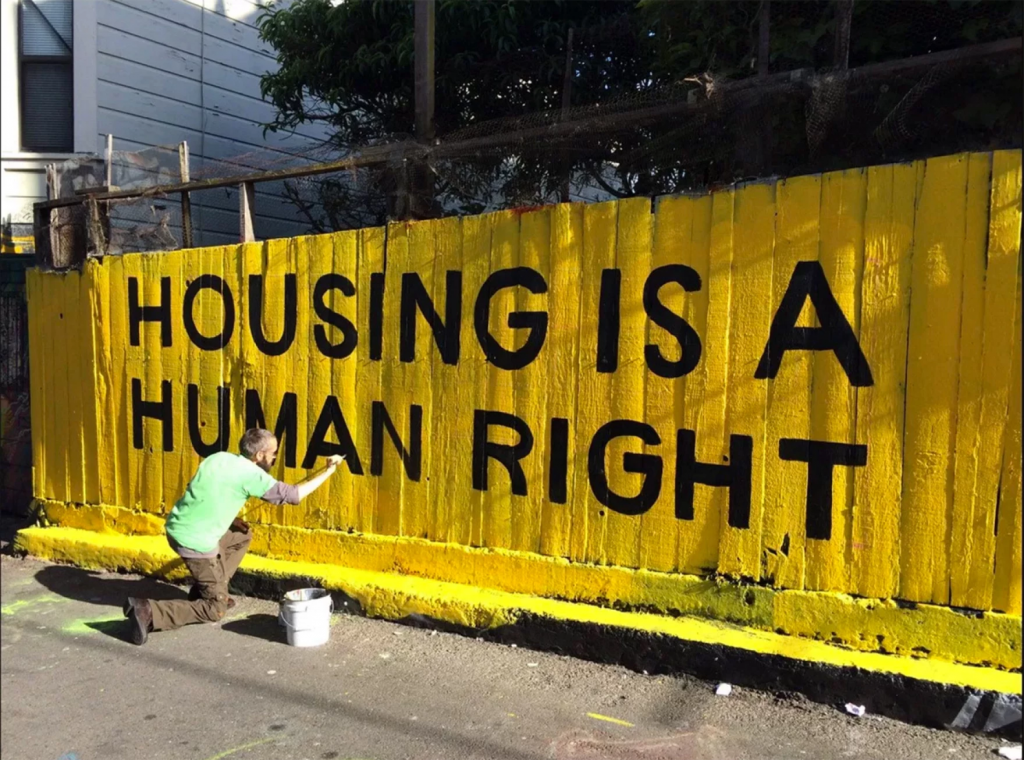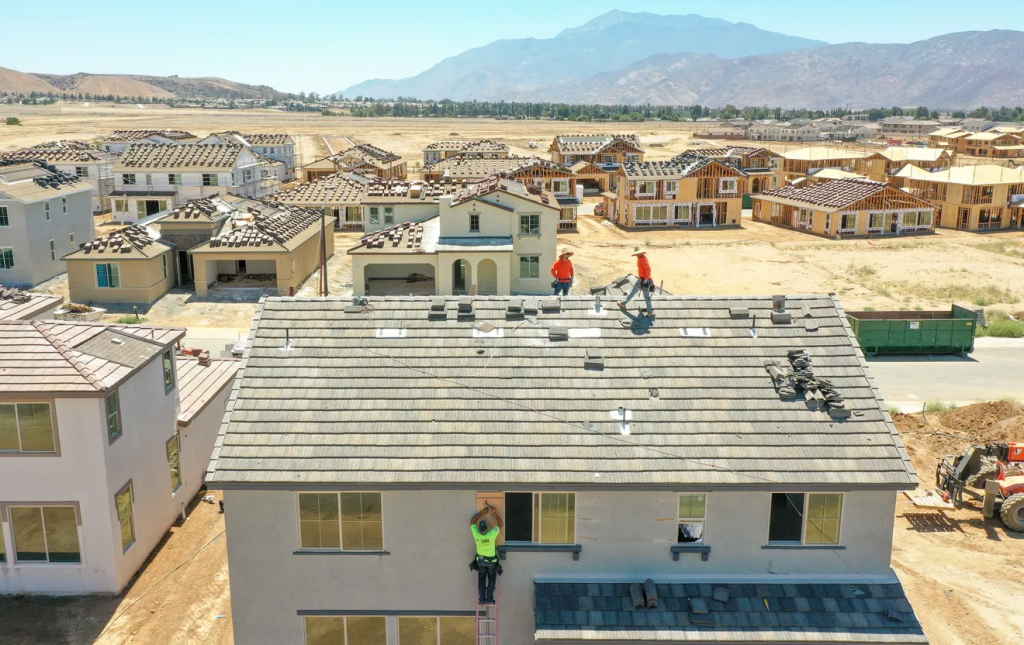Happy 2025! For the first State of the Bay of the year, I’ll talk to the San Francisco Chronicle’s Sophia Bollag about the new laws Californians must follow now.
Then Berkeley’s new Mayor Adina Ishii will take questions about her priorities. What do you think her priorities should be? What questions do you have for her? Email us at stateofthebay@kalw.org.
Finally, we’ll meet San Francisco’s new poet laureate Genny Lim.
Tune in at 91.7 FM in the San Francisco Bay Area or stream live tonight at 6pm PT. Call 866-798-TALK to join the conversation!

It’s double duty for me today on KALW, where I’m hosting two leading climate scholars for Your Call at 10am and then hosting State of the Bay at 6pm PT on the chaos at San Francisco Unified and the state of housing in California.
The action kicks off at 10am PT with:
- Naomi Oreskes, Henry Charles Lea Professor of the History of Science and Affiliated Professor of Earth and Planetary Sciences at Harvard University, and author of nine books including her best-selling Merchants of Doubt: How a Handful of Scientists Obscured the Truth on Issues from Tobacco Smoke to Global Warming; and
- Michael Mann, Presidential Distinguished Professor in the Department of Earth and Environmental Science at the University of Pennsylvania, with a secondary appointment in the Annenberg School for Communication, and author of several important books including The New Climate War: The Fight to Take Back Our Planet
I’ll ask them about Hurricane Helene and what it says about climate change, plus the just-concluded Climate Week in New York City that coincided with the UN general assembly.
Then at 6pm PT, join us on State of the Bay for the latest on the San Francisco Unified School District, with an ongoing fiscal crisis, just-announced delay of potential school closures, and emergency scrutiny of the superintendent. Jill Tucker, education reporter with the San Francisco Chronicle, will unpack it all.
Then we’ll hear about new efforts to address California’s housing shortage with experts Chris Elmendorf, professor of law at the University of California, Davis, School of Law, and Ben Metcalf, managing director of the Terner Center for Housing Innovation at UC Berkeley.
Finally, we’ll sit down with Obi Kaufmann, the artist, author and naturalist who has published a series of beloved books about his home state of California.
Tune in at 91.7 FM in the San Francisco Bay Area or stream live at 10am PT for Your Call and then again at 6pm PT for State of the Bay. What comments or questions do you have for our guests? Call 866-798-TALK to join the conversation!

Tonight on State of the Bay, I’ll interview SFMTA director Jeff Tumlin about the new plan for the controversial Valencia St. center bike lane. How can the city keep bicyclists safe on this busy corridor?
Then we’ll have a panel discussion on the prospect of office-to-residential conversions in downtown San Francisco. Many mayoral candidates argue that turning empty offices into homes is a way to revitalize our city, but are these conversions financially feasible? Guests include Sujata Svristava from SPUR, State Assemblymember Phil Ting, and Marc Babsin of the Emerald Fund.
Finally, producer Anne Harper sits down with local author William Gee Wong about his new book Sons of Chinatown: A Memoir Rooted in China and America.
Tune in at 91.7 FM in the San Francisco Bay Area or stream live at 6pm PT. What comments or questions do you have for our guests? Call 866-798-TALK to join the conversation!

I’ll be a guest on KQED Forum at 10am PT today for our In Transit series, this time discussing the future of Amtrak and long-distance passenger rail in California.
Amtrak reports that overall demand for passenger rail is soaring, as yearly ridership totals approach pre-pandemic levels. But here in California the story is different. Popular west coast lines are losing riders and remain challenged by underinvestment and too much track priority to freight trains. In addition, increasingly powerful storms and rising seas threaten Amtrak’s infrastructure, with Southern California’s Pacific Surfliner has repeatedly suspended service for emergency repairs.
Joining me as a panelist on the show will be Tom Zoellner, English professor at Chapman University and author of “Train: Riding the Rails That Created the Modern World -from the Trans-Siberian to the Southwest Chief.”
Tune in on KQED 88.5 FM in the San Francisco Bay Area or stream live at 10am PT!

Tonight on State of the Bay, I’ll host a discussion on how Oakland baseball fans are determined to keep professional baseball alive in the city. Instead of the A’s, fans may soon be rooting for the B’s! Guests include Bryan Carmel, Ballers co-founder and chief experience officer and Jorge Leon, president of the Oakland 68’s.
And later in show, we’ll cover how Safeway abruptly announced this month that in March it would close its store located on Webster Street in San Francisco’s Fillmore district. What will the closure of the neighborhood’s only full-service grocery store mean for the community, with its history of redlining and gentrification? Guests include San Francisco District 5 Supervisor Dean Preston and long-time Fillmore resident Pia Harris.
Finally, we’ll meet Willard Harris, who’s going strong at age 104. What can her story tell us about how to age well?
Tune in at 91.7 FM in the San Francisco Bay Area or stream live at 6pm PT. What comments or questions do you have for our guests? Call 866-798-TALK to join the conversation!
This question vexes so many transit advocates, when we look at the relatively high costs to build fixed transit in the U.S. (and other English-speaking countries) compared to other advanced economies around the world. It’s a subject I tackled indirectly in my book Railtown on the history of the Los Angeles Metro Rail system and directly in the 2022 Berkeley Law report Getting Back on Track.
Now Los Angeles documentary film producer and editor Nick Andert is tackling the question in an engaging, informative and in-depth piece he posted on YouTube, featuring an interview with yours truly and Alon Levy of NYU.
For transit nerds and those who care about improving mobility in American cities, I highly recommend it:

On tonight’s State of the Bay, I’ll be interviewing Steve Berman, the “Bay Area Sports Guy,” now of The Athletic, to hear his insights. Was the 49ers’ shocking loss yesterday a fluke? Will the Warriors’ intriguing new roster work? And can the new WNBA team thrive here?
Then we’ll talk housing in the Bay Area. Governor Newsom recently signed a whopping 56 new housing bills. Cities are under pressure to build more, and fast. Will these new bills help? Joining us will be:
- Sarah Karlinsky of SPUR
- Ben Metcalf of the Terner Center for Housing Innovation at UC Berkeley
Finally, we’ll hear about a new exhibit on censorship called unBANNED, with Tamsin Smith, curator at Arion Press Gallery in the Presidio.
Tune in at 91.7 FM in the San Francisco Bay Area or stream live at 6pm PT. What comments or questions do you have for our guests? Call 866-798-TALK to join the conversation!

Being a pedestrian isn’t easy in California’s car-centric culture, so what can be done to improve walkability? I’ll be a guest on KQED Forum today at 10am PT to discuss, as part of Forum’s “In Transit” series where I’m a regular guest.
Much of the infrastructure in the state is built with cars in mind, and that means that walkers and wheelchair-users can confront serious safety risks in a state where an average of three pedestrians are killed every day. How is the state is addressing pedestrian safety issues, and what do you notice when you don’t use a car?
Joining me on the show will be Tim Weisberg, deputy director, marketing and public affairs, California Office of Traffic Safety.
You can stream live or tune in on KQED in Northern California.

I’ll be a guest on KQED Forum today at 10am PT discussing congestion pricing — where cities charge drivers to enter congested areas during peak times, as a way to limit traffic and pay for transit. The show is part of Forum’s “In Transit” series where I’m a regular guest.
London, Stockholm and Singapore all use congestion pricing, but it has yet to be adopted in any U.S. city. Los Angeles is now studying the concept, and LA Metro will soon release a report examining which parts of the city could benefit most from congestion pricing.
Joining me on the show will be Mark Vallianatos, executive officer in the Office of Strategic Innovation, LA Metro.
You can stream live or tune in on KQED in Northern California.

A major new piece of housing and climate legislation was introduced in California this month, and it’s been a long time coming. AB 68 (Ward) finally sets forth a powerful template for where the state should encourage new housing and where it should avoid planning for more, based on climate and environmental hazards. It represents the culmination of a long-sought alliance between major housing advocates like California YIMBY and conservation groups like The Nature Conservancy.
So where should the state build more housing, according to AB 68? It defines those places in the following “climate smart” ways:
- In a high or moderate income area, as defined by state affordable housing tax credit maps, to prioritize more housing in high-opportunity and well-resourced areas and minimize displacement of low-income renters
- Within 1/2 mile of major transit or an area where residents drive below-average distances on a per capita average, in order to reduce overall driving miles in the state
- Within a mile of a cluster of at least six types of locations like restaurants, bars, coffee shops, supermarkets, parks and hardware stores, among others, to ensure rural and exurban infill areas aren’t left out, as well as places without access to transit.
If a housing development is proposed in these areas, the project gets “ministerial” approval (i.e. exempt from environmental review), and a local government cannot limit the development beyond any of the following:
- Setback greater than four feet from any side
- Height limit less than 50 feet
- Maximum lot coverage of less than 60 percent
- Minimum parking requirement
- Floor area ratios (i.e. the building’s total floor area in relation to the size of the lot/parcel, indicating overall density) less than 1.0. to 1.5, depending on criteria met
There are additional requirements to protect existing affordable housing and ensure consistency with SB 375 plans, among others.
And where should planning for denser development in the state be limited? AB 68 describes these “climate risk lands” as within high-severity wildfire and flood zones, or having a sea level rise risk according to the latest science. They also must be not currently zoned for housing or have existing urbanized communities on them.
In these areas, local governments cannot increase existing housing densities or allow subdivisions, and they cannot approve any extension of water or sewer services, unless certain exceptions can be met, such as an approved housing element and a statement of housing necessity, among other conditions.
In short, AB 68 finally provides the much-needed, legislatively endorsed map for where the state should grow and where it should avoid putting more people into harm’s way. If successful, AB 68 will arguably be the single biggest climate bill that the state has passed in over a decade, given the centrality of land use and housing to meeting our climate goals. The fight to pass it will not be easy, but AB 68 has a powerful coalition to support it, along with a well-conceived solution to the state’s urgent and related challenges of climate and housing.



